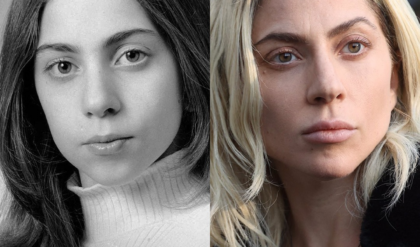Cary Fukunaga, the director behind the latest James Bond film No Time to Die, is making his feelings known about the first onscreen interpretation of the iconic spy character.
Carey Fukunaga and Sean Connery
Jesse Grant/Getty Images; Donaldson Collection/Michael Ochs Archives/Getty Images
While speaking with The Hollywood Reporter for an interview published Wednesday, the 44-year-old filmmaker reflected on Sean Connery’s version of 007 and compared the character to a rapist.
Recalling past Bond films, Fukunaga asked the publication, “Is it Thunderball or Goldfinger where, like, basically Sean Connery’s character rapes a woman? She’s like ‘No, no, no,’ and he’s like, ‘Yes, yes, yes.'”
“That wouldn’t fly today,” the director — who helmed previous films such as Beasts of No Nation and Jane Eyre — added to the outlet.
Ursula Andress, Sean Connery
Apic/Getty Images
According to The Guardian, the scene in which Fukunaga was referring to could come from either of the films he mentioned.
In 1964’s Goldfinger, Connery’s Bond forces himself on Pussy Galore, who is played by Honor Blackman, while the duo is together in a haybarn, the outlet said.
Then in Thunderball, which was released a year later, Connery’s Bond kisses a nurse who had previously denied his advances. Later in the film, Bond says that he will keep quiet about information that could get the nurse — played by Molly Peters — fired if she sleeps with him.
“I suppose my silence could have a price,” he says, to which Peters’ character replies, “You don’t mean … oh, no,” before Bond responds back, “Oh, yes,” and takes off her clothes inside a sauna, per the outlet.
Also speaking with THR, Barbara Broccoli — a producer on the film who has worked behind-the-scenes on Bond movies since 1977’s The Spy Who Loved Me — praised Fukunaga for how he handled Bond in what will mark Daniel Craig’s last outing in the role.
“I think people are coming around — with some kicking and screaming — to accepting that stuff is no longer acceptable. Thank goodness,” she said.
“Bond is a character who was written in 1952 and the first film [Dr. No] came out in 1962. He’s got a long history, and the history of the past is very different to the way he is being portrayed now.”
Noting that Bond can’t be changed “overnight into a different person,” Fukunaga added that “you can definitely change the world around him and the way he has to function in that world.”
“It’s a story about a white man as a spy in this world, but you have to be willing to lean in and do the work to make the female characters more than just contrivances,” he explained.
News
A Creative Journey: Lady Gaga’s Artistic Growth and Fearless Embrace of Individuality
The weirdness and craziness of star Lady Gaga’s outfits have been increasing every day. Even if she were dressed in rags and beggar clothes, no one would be surprised. Lady Gaga created her own unique, shocking fashion line that no…
Gaga’s Street Style: No Bras, Semi-Sheer Top, and Daring Daisy Dukes in NYC
Lady Gaga recently unveiled the much-anticipated track list for her latest album, Joanne, and she is certainly not shying away from the limelight. The singer was spotted in New York on Saturday confidently flaunting her unique fashion sense. Her daring…
VIDEO : Unexpected Flashback: Old Footage Resurfaces Showing Lady Gaga’s Unusual On-Stage Act with a Girl Vomiting on Her Chest
It’s come back up. A clip of a woman making herself vomit on Lady Gaga during her SXSW performance in 2014 has resurfaced online — and the bile hasn’t aged well. Gaga, 36, incorporated performance artist Millie Brown into her choreography…
My First Piano Teacher Was a Stripper’: Lady Gaga Reveals Dad Hired a Stripper as Her Music Teacher, Linking it to Her Signature Long Nails
Lady Gaga is one of the popular artists who’s known for image reinventions and musical versatility. She rose to fame with her debut studio album, The Fame in 2007 with its chart-topping singles Just Dance and Poker Face. She is not only…
20 Bizarre Photos Prove That Lady Gaga Is The Most Unhinged Fashion Icon Ever
One of the most iconic and multi-talented artists of our time, Lady Gaga, with worldwide hits such as Bad Romance, Judas, and Born This Way, is also known as a composer, an actress, and above all, a fashionista. Known as…
Lady Gaga Goes Makeup-Free for Oscars Performance, Letting People See the Real Her
Oscars executive producer reveals Lady Gaga decided to go makeup-free during her performance to show people the ‘real’ her. Featured Image Credit: ABC Yesterday (March 13), the musician stunned viewers with a performance of the Oscar-nominated song ‘Hold My Hand’…
End of content
No more pages to load













